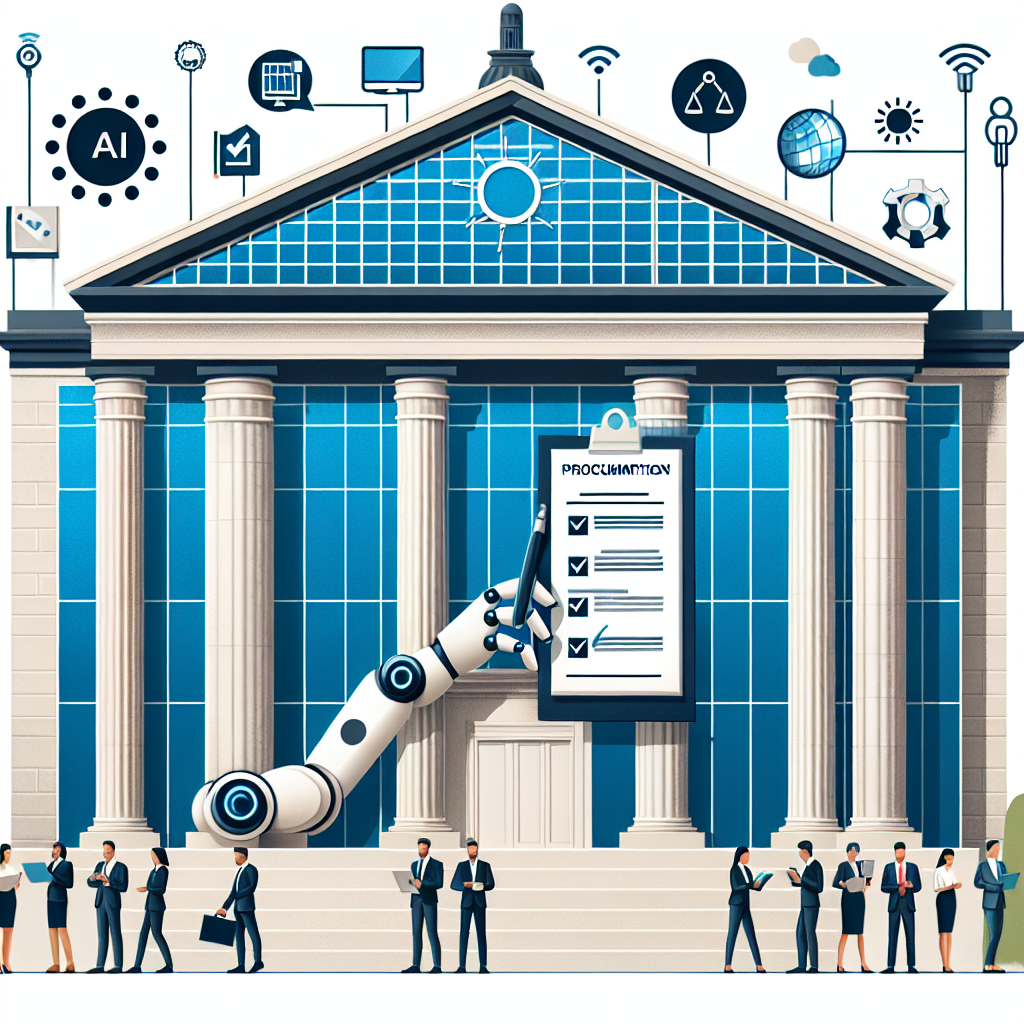Introduction
Government procurement is a crucial process that involves the acquisition of goods and services by government agencies. It is a complex and time-consuming process that requires a significant amount of resources and manpower. However, with the advent of artificial intelligence (AI), government procurement processes are being streamlined and costs are being reduced.
AI in Government Procurement
AI is revolutionizing government procurement by automating and optimizing various tasks and processes. Here are some ways in which AI is being used in government procurement:
1. Predictive Analytics: AI algorithms can analyze historical data to predict future trends in procurement, such as demand for certain goods and services, price fluctuations, and supplier performance. This helps government agencies make informed decisions and optimize their procurement processes.
2. Supplier Management: AI can help government agencies manage their suppliers more efficiently by analyzing supplier data, evaluating performance, and identifying potential risks. This ensures that government agencies are working with reliable and high-quality suppliers.
3. Contract Management: AI can automate the contract management process by analyzing contracts, identifying key terms and clauses, and ensuring compliance. This reduces the risk of errors and improves contract performance.
4. Spend Analysis: AI can analyze spending patterns and identify areas where costs can be reduced or optimized. This helps government agencies save money and improve their procurement efficiency.
5. E-Procurement: AI-powered e-procurement platforms streamline the procurement process by automating tasks such as vendor selection, purchase order creation, and invoice processing. This saves time and reduces the risk of errors.
Benefits of AI in Government Procurement
The use of AI in government procurement offers several benefits, including:
1. Cost Reduction: AI helps government agencies optimize their procurement processes, identify cost-saving opportunities, and reduce the risk of errors. This leads to significant cost savings in the long run.
2. Time Savings: AI automates time-consuming tasks such as data analysis, contract management, and supplier evaluation, allowing government agencies to focus on more strategic activities.
3. Improved Efficiency: AI streamlines the procurement process, reduces manual intervention, and improves overall efficiency. This results in faster procurement cycles and better outcomes.
4. Enhanced Decision-Making: AI provides government agencies with valuable insights and predictive analytics, enabling them to make informed decisions and optimize their procurement strategies.
5. Better Compliance: AI helps government agencies ensure compliance with regulations and contract terms by automating the monitoring and enforcement of rules and policies.
FAQs
Q: How can AI help government agencies manage their suppliers more effectively?
A: AI can analyze supplier data, evaluate performance, and identify potential risks, helping government agencies work with reliable and high-quality suppliers.
Q: What are the benefits of using AI in government procurement?
A: The benefits of using AI in government procurement include cost reduction, time savings, improved efficiency, enhanced decision-making, and better compliance.
Q: How can AI help government agencies save money in procurement?
A: AI can analyze spending patterns, identify cost-saving opportunities, and optimize procurement processes, leading to significant cost savings.
Q: What are some examples of AI applications in government procurement?
A: Some examples of AI applications in government procurement include predictive analytics, supplier management, contract management, spend analysis, and e-procurement platforms.
Conclusion
AI is transforming government procurement by streamlining processes, reducing costs, and improving efficiency. By leveraging AI technologies, government agencies can optimize their procurement strategies, make informed decisions, and achieve better outcomes. As AI continues to evolve, it will play an increasingly important role in government procurement, making the process more transparent, efficient, and cost-effective.

